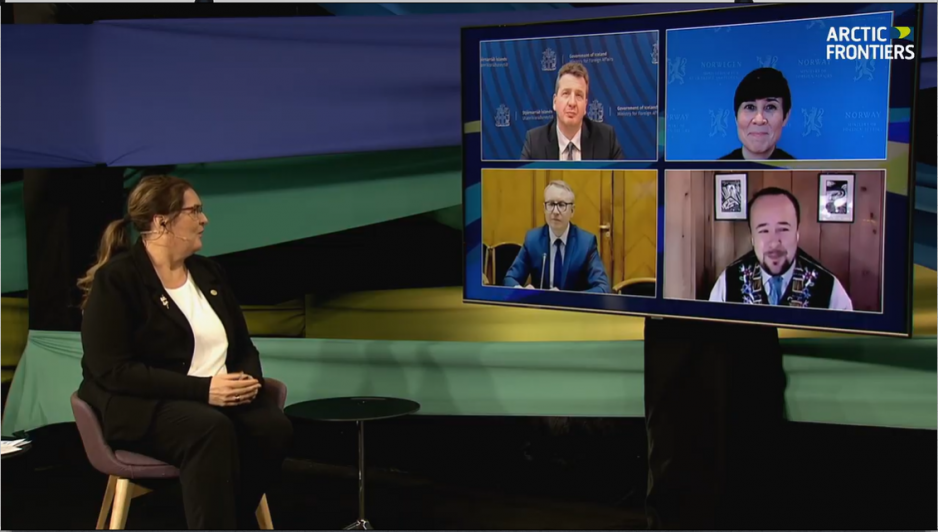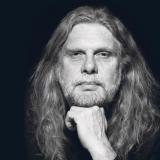Commentary: An Arctic Success Story – Soon with Russia at the Helm

The Arctic Council celebrates its 25th anniversary. During Arctic Frontiers, Iceland’s Foreign Minister Thor Thordarson, Norway’s Foreign Minister Ine Eriksen Søreide, Russian Arctic Ambassador Nikolay Korchunov and Canadian Edward Alexander discussed the future of this cooperation. Liv Monica Stubholt moderated the debate.
Commentary: If, as a citizen in the Arctic, you were to feel lost and alone these days, there may be comfort in thinking about how you are an important part of one of the world’s most exciting international cooperation stories. When Russia assumes the chairmanship of the Arctic Council in May, it does so with a promise to bring cooperation closer to the people.
Lexically speaking, 1996 was not a very eventful year. Most people noted that Lady Di divorced Prince Charles.
The fact that in that same year, an international political initiative was taken in Ottawa, Canada that was to characterize Arctic cooperation for the next 25 years, went below the radar of most people.
And it probably still does.
Not take for granted
There is no objective measuring of the effect of eight Arctic states; the USA, Russia, Norway, Canada, Iceland, Denmark, Sweden and Finland, on 19 September 1996 joining forces to establish the Arctic Council.
The fact that this cooperation is still ongoing 25 years later, and the fact that the Arctic can be referred to as a peaceful corner of the world, is nevertheless an indication that this is a success story.
Perhaps it is even so that the rather modest role taken by the Arctic Council in the public sphere is a part of the explanation for its success.
Because, in the words of Norwegian Foreign Minister Ine Eriksen Søreide the other day, during the Arctic Frontiers conference, this is not something one can take for granted.
It is not an empty space in which other countries can help themselves to whatever spoils they want
The debate was a meeting between the present and the future of the Arctic Council. In addition to Ine Eriksen Søreide, the debate also included Iceland, the current Chair of the organization, with its Foreign Minister Thor Thordarson. Russia, which assumes chairmanship in May, had sent its Arctic Ambassador Nikolay Korchunov. And when Russia after two years at the helm passes the baton on, Norway is next in line.
Cooperation in the High North is not and has not been void of any conflict. Yet cooperation continues, despite major international tensions, despite sanctions and military rearming in the Arctic.
Dialogue most important
The most important thing is dialogue – a dialogue that is enabled through the eight Arctic states’ having a shared interest in developing and preserving the Arctic within a national, bilateral, and internationally accepted framework. Not to forget; they share an interest in communicating this message to the rest of the world when it is knocking on the door to the Arctic.
It is not an empty space, albeit being presented as such in some contexts, in which other countries can help themselves to whatever spoils they want.
That is also why the debate at Arctic Frontiers, excellently led by Liv Monica Stubholt, first and foremost was an interesting study in views on how to relate to non-Arctic states that want a position in the Arctic. Most noticeable to China, which currently holds observer status within the Council.
Many countries hold that position, though the big power of China stands out. Both because the country keeps expanding its economic engagement in the Arctic, because it is growing to become the world’s strongest economy, because it increases its military capacity and challenges human rights, and because both economic as well as political conflicts between western countries and China increase, while China and Russia keep finding new ways through which they cooperate.
Must be relevant to us who live here
China challenges the Arctic
From a Norwegian viewpoint, the preconditions are that non-Arctic states wanting influence in the Arctic Council must accept the established framework, and that the framework is still decided by the Arctic eight. “Some initiatives, such as climate and science are welcome, while others are not”, Ine Eriksen Søreide said during the debate, though without referring more precisely to what initiatives are not welcome.
Here, Norway and the USA will be of one and the same mind.
Russian Nikolay Korchunov is of a quite different view and asked why there is so much focus on China. “The Arctic is opening up, and here are resources that the world need. Chine does not only invest in the Arctic, but also in the USA and Canada, and it is an important part of the world’s economy. We should welcome them”, are some of the remarks Korchunov brought during the debate.
Yet the most important key factor for the future of the Arctic Council is for it to become relevant for us who live here.
And there, Russia and Norway are fully aligned.
More from Arne O. Holm:
This commentary was originally published in Norwegian and has been translated by HNN's Elisabeth Bergquist.


